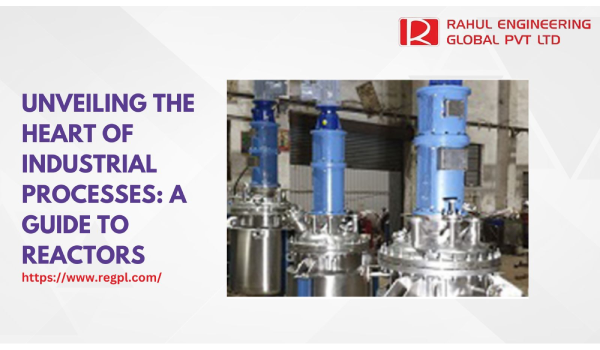
In the intricate landscape of industrial processes, reactors stand as the beating heart, orchestrating chemical transformations and catalyzing essential reactions. This blog aims to demystify reactors, exploring their definition, key benefits, advantages, operational mechanisms, and distinctive features.
What is a Reactor?
A reactor, in the context of industrial chemistry and manufacturing, is a vessel or system designed to facilitate chemical reactions, often transforming raw materials into desired products. Reactors are fundamental to numerous industries, including pharmaceuticals, petrochemicals, and food production, where controlled reactions are imperative.
Key Benefits of Reactors:
1. Controlled Environment:
Reactors provide a controlled environment for chemical reactions, allowing precise regulation of temperature, pressure, and other parameters. This control is crucial for ensuring consistent product quality.
2. Increased Efficiency:
By optimizing reaction conditions, reactors enhance the efficiency of chemical processes, leading to higher yields and reduced waste. This, in turn, contributes to improved resource utilization.
3. Safety and Environmental Compliance:
Reactors are designed with safety features to prevent accidents and ensure compliance with environmental regulations. The controlled environment minimizes the risk of hazardous reactions and emissions.
Advantages of Reactors:
1. Versatility:
Reactors are versatile and can accommodate a wide range of chemical reactions, making them suitable for diverse industries and applications.
2. Scalability:
Reactor systems can be scaled up or down to meet production requirements. This scalability is essential for industries that experience varying demand for their products.
3. Automation:
Many modern reactors are equipped with automation features, enabling precise control and monitoring of reaction parameters. This not only improves efficiency but also reduces the need for manual intervention.
How do Reactors Work?
Reactors operate based on the principles of chemical engineering and thermodynamics. Common types of reactors include:
1. Batch Reactors:
These reactors handle one batch of material at a time, making them suitable for small-scale production and research.
2. Continuous Flow Reactors:
Continuous reactors process materials continuously, allowing for a steady output of products. They are often used in large-scale industrial production.
3. Catalytic Reactors:
Catalytic reactors employ catalysts to facilitate and speed up chemical reactions, enhancing reaction rates and selectivity.
Features of Reactors:
1. Temperature Control:
Reactors feature temperature control systems to maintain optimal reaction conditions, ensuring product consistency and quality.
2. Pressure Vessels:
Many reactors are designed as pressure vessels to handle reactions that require elevated or reduced pressures.
3. Material Compatibility:
Reactors are constructed from materials compatible with the chemicals involved in the reactions, ensuring durability and safety.
Conclusion:
In conclusion, reactors play a pivotal role in shaping the landscape of industrial processes by providing a controlled environment for chemical transformations. Their benefits, advantages, and operational features contribute to increased efficiency, safety, and adaptability across various industries. As technology continues to advance, the role of reactors in driving innovation and sustainable practices in chemical manufacturing becomes even more pronounced.
Choose Rahul Engineering Global Pvt Ltd for versatile and automated reactor solutions for your business.
